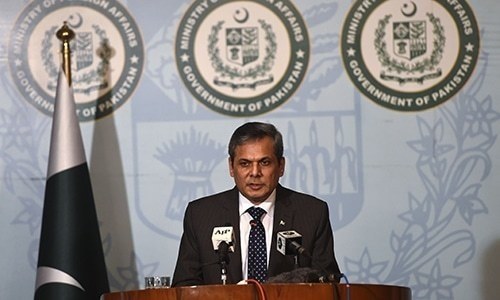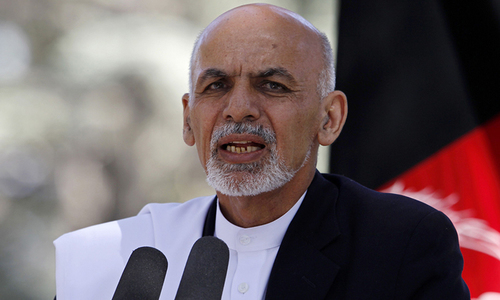Amidst a deteriorating security situation in Afghanistan, there are incipient signs that another attempt at an Afghan peace process is under way.
While denied by the Afghan Taliban, a report claiming that Pakistan has hosted a Taliban delegation in Islamabad ahead of a multilateral summit in Russia next month suggests that behind-the-scenes manoeuvring is increasing. As ever, the signals are mixed and hopes for a quick breakthrough are necessarily low.
Another media report, quoting an unnamed US State Department official, has suggested that the US will not participate in the Moscow summit, ostensibly because the US was not consulted before the summit was scheduled.
With the US administration seemingly in disarray and the new Secretary of State Rex Tillerson scheduled to travel to Russia next month, there is a possibility the US will reverse itself and participate in the summit, but the confusion only underscores the great difficulty in aligning the interests of outside powers on Afghanistan.
Certainly, while the US is a pre-eminent actor in the Afghan impasse because of its military and economic commitments to the Afghan state and its diplomatic heft on the global stage, the regional dimension of the problem means that Pakistan can and should take the lead in finding a negotiated solution.
In the failed dialogue process of 2015 and a second attempt pre-empted by the US killing the Taliban leader Mullah Mansour in a drone attack in 2016, Pakistan has over the last several years at least demonstrated its preference for a negotiated settlement and a willingness to help achieve that.
Now, following a China-led peace attempt having fizzled out because of vicious militant attacks in Kabul, the Moscow summit presents an opportunity to reignite a stalled Afghan peace process and counter the violent and growing cross-currents of the regional militancy. Peace may be elusive, but the alternative is unthinkable.
Perhaps even if a peace process cannot immediately be started — the past month has seen a new low in Pak-Afghan ties that is only now beginning to be repaired, and bilateral tensions have an obvious potential to scuttle a possible dialogue — a fresh series of consultations amongst regional and international countries can help develop a framework in which the Afghan government and the Taliban can eventually achieve reconciliation.
The Taliban have been remarkably consistent in their demands over the years. From the release of prisoners to removal from UN black lists and the eventual total withdrawal of foreign forces, there is a phased negotiation process that can be conceived before arriving at the hard negotiations over the constitution, the eventual political set-up and, possibly, power-sharing.
No such clarity is apparent on the other side. Besides the end of violence and, before that, possibly a cessation of Taliban attacks in Kabul, there is little trace of even a possible roadmap to peace. Perhaps the imminent Moscow process can focus on that.
Published in Dawn, March 25th, 2017












































